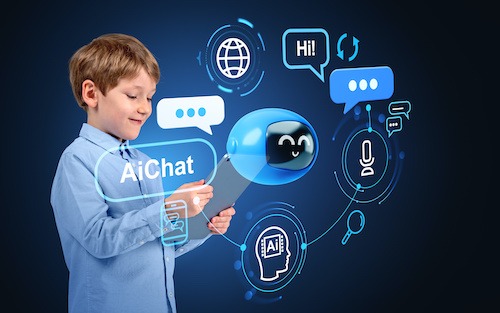The integration of AI into education offers transformative benefits but must be balanced with the cultivation of students' critical thinking skills. Experts emphasize that AI should be a tool to enhance—not replace—independent thought, research, and analysis to prepare learners for complex problem-solving and lifelong intellectual growth.
AI in Education: Enhancing Learning While Preserving Critical Capacity
Artificial Intelligence (AI) has become an invaluable resource in education, generating new possibilities for research, personalized learning, and content generation. However, leading educators and researchers highlight that alongside these advantages, it is crucial to sharpen students' critical thinking and independent judgment to avoid over-reliance on AI tools.
AI platforms like ChatGPT provide instant access to vast information and can assist students in structuring arguments, refining ideas, and self-assessing work. This technology encourages exploration of alternative views and deeper engagement with academic material, fostering curiosity and intellectual inquiry. Yet, the responsibility lies with educators to guide students in discerning, verifying, and critically analyzing AI-generated content to ensure meaningful learning outcomes.
Important Points and Key Highlights
AI as a Research Facilitator: AI can streamline research by avoiding endless information searches and providing concise, credible summaries. This frees students to focus on critical engagement rather than mere data collection.
Developing Discernment: The most vital skill is knowing when and how to use AI. Assignments should be designed to inspire originality and deep analysis, ensuring AI augments rather than replaces thinking.
Interactive Learning: Tools like ChatGPT promote active learning by providing counterarguments, alternative perspectives, and prompting reflective questions, thereby enhancing critical thinking and debate skills.
Educator’s Role: Teachers must offer strong guidance on validating AI outputs, recognizing biases, and fostering students' self-regulation to prevent dependency.
Balancing Technology and Skills: AI has the potential to accelerate academic growth but could erode essential higher-order skills without effective pedagogical frameworks.
Sustainable Intellectual Growth: Critical thinking requires active reflection, evaluation, and judgment—processes that AI tools can support but never replace.
Conclusion
Integrating AI into education is essential to keep pace with technological advances, but it must be coupled with deliberate efforts to sharpen learners’ critical thinking capabilities. By fostering informed, reflective, and discerning AI use, educators can help students become confident thinkers and innovators prepared for future challenges. AI is not a threat but a powerful ally for enhancing education—when wielded wisely.
Sources: Education Week, Microsoft AI in Education Report, EduTopia, ERIC Journal of Education, UNESCO

